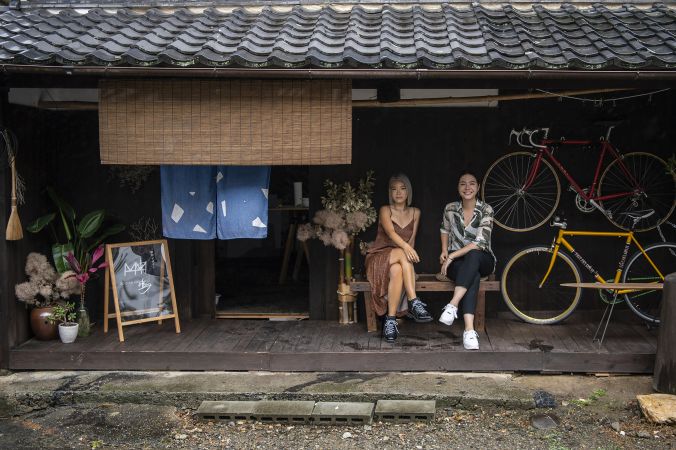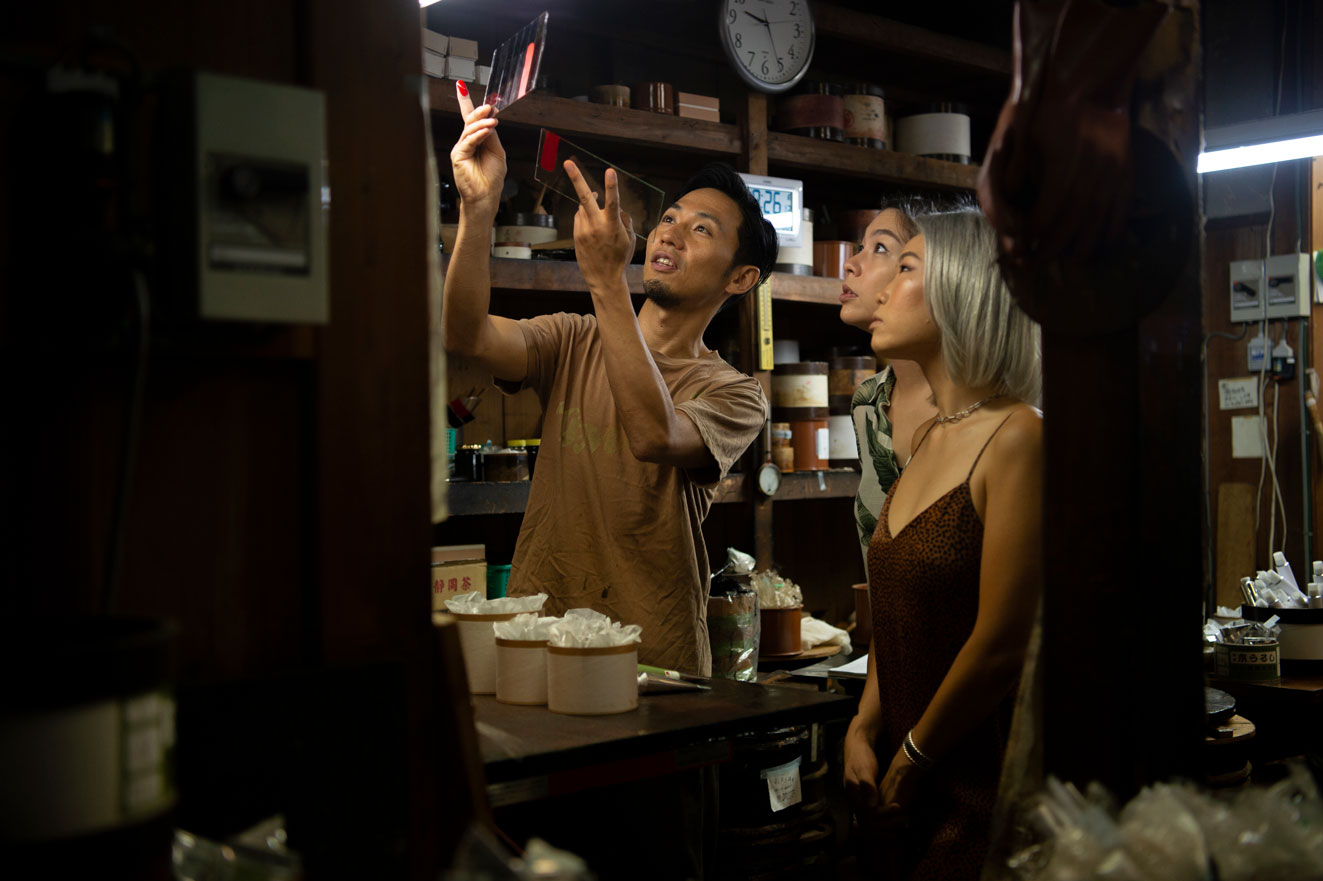
August 3, 2020
Community-Minded Design
POJ Studio spotlights artisanship through female entrepreneurship
Japanese design has long been admired around the world. From an obsession with clean, minimal lines, muted tonal palettes and thoughtful use of natural materials, it’s scarcely a wonder that famous architects the world over have turned to the land of the rising sun for inspiration. It’s no surprise, then, that homeware has followed suit. What is surprising though, is the mindset of the recently launched POJ Studio in its approach to bringing Japanese crafts to the world. With a focus on reviving and regenerating age-old techniques, POJ (which stands for “Pieces of Japan”) Studio works with Japan’s independent craftspeople, creating an online platform to bridge the gap between artisans and consumers with a yearning for the handcrafted homeware they produce.
Metropolis sat down with founders Tina Koyama and Hana Tsukamoto, plus fourth generation urushi (lacquer) artisan Takuya Tsutumi, to discuss the importance of conscious consumption in modern life, how to market the intricate techniques of craftspeople and being female entrepreneurs in Japan’s majority-masculine business landscape.

Metropolis: Can you tell us about the origins of POJ Studio? How has it evolved since you founded it?
Tina Koyama: My mother has been working as a buyer specializing in Japanese crafts for years. It’s through her that I discovered the world of Japanese artisans and the challenges they are facing and so I was inspired to do something to combat their decline. I started POJ to foster a socially responsible attitude towards the way we live by providing modern lifestyle products that last, are repairable and are created from sustainable materials in a way that encourages the revival of dying Japanese craft traditions. With everything we do, we always work toward giving back to the artisan community, helping them to continue on to the next generation.
We want to meet the ever-increasing demand for a more ethical way of living by building awareness around how much skill goes into creating our products, but also to share the history behind many of the techniques.
-POJ Studio cofounder Tina Koyama
M: Tell me about your background and how that sets POJ apart from competitors.
TK: I was born and raised in Switzerland, to a Swiss architect father and a Japanese mother who taught me everything I know about Japanese culture. After a number of years living in Silicon Valley and working in tech, my family and I returned to Kyoto. Bringing with me a cultural knowledge of Europe, the U.S. and Japan, and a design background from having worked at the forefront of technology.
Hana Tsukamoto: I was born in Japan but I spent my higher education in California. After that, I moved to New York where I went to the School of Visual Arts, and subsequently built my career as an art director at an agency before moving back to Kyoto to start my vacation home business.
TK: We met through mutual friends and instantly connected. Once we were in Kyoto we met often and at the end of last year started discussing POJ Studio. We both have the same love for and desire to help Japanese craftspeople and so there was no doubt in our minds to partner up.
With POJ Studio, unlike other brands that develop products for the Japanese market and hope to sell them internationally, we use our combined backgrounds in product development, coupled with our being in Japan and speaking native Japanese, to work closely with our partner artisans over time, developing products that fit into modern international homes. This all allows us to form meaningful relationships that will hopefully last for years to come. I don’t think there’s any other brand in the current market that comes close to doing what we do.
[rl_gallery id=”191578″]
M: Why is it important to you to tell the stories of the craftspeople with whom you work? How do they feel about you?
TK: We were inspired by the drive to invest in local communities, we saw a gap in the market and we decided to affect radical change in what we choose to fill our lives with. We want to meet the ever-increasing demand for a more ethical way of living by building awareness around how much skill goes into creating our products, but also to share the history behind many of the techniques. Ultimately the goal was to combine all of this to create a stable income for artisans, ensuring the survival of a number of precious Japanese crafts.
Takuya Tsutumi: I felt the love for Japanese craftsmanship from the moment I met Hana and Tina. They were very aware of the challenges the traditional crafts of Japan are facing, and I was happy to hear that they were trying to create a solution for our stories to reach the world. There was no question in my mind that I wanted to partner with them from the very beginning.
M: Do you think it’s important that you are doing this as young, female entrepreneurs in Japan?
HT: We started POJ Studio firstly because we have a passion for Japanese design and helping dying traditions, but also because we want to change the culture and mindset around women in the industry here; showing that we are just as powerful and capable as men. We want to inspire women, and the next generation of young boys and girls, to fight for what they care about, doing things that others said couldn’t be done. We can’t be afraid of failure, but must embrace one another as a community to encourage, celebrate and support each other.
TK: While life in Japan is amazing, the work culture is not very amenable to people seeking a positive work-life balance, particularly for working mothers and women in general. We’ve met so many inspirational women on our journey and we hope to share their stories, listen to their voices and create an encouraging working culture for women, particularly here in Kyoto which is believed to be more conservative than other cities such as Tokyo or Osaka.
Learn more at pojstudio.com.







